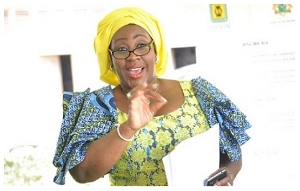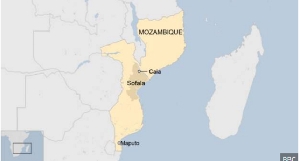Opinions of Monday, 5 May 2014
Columnist: Anim-Mensah, Alexander
Review and Re-Evaluate the Northern Region Free Education
Request for Government to Review and Re-Evaluate the Northern Region Free Education Mandate Endpoint
It’s been a while since the pronouncement of the popular speech “Ghana my beloved country is free forever” by Dr. Kwame Nkrumah. It was a new beginning during that period, and several mandates were put in place for nation building. One of the mandates designed specifically to level the playing field was the provision of free education for the people in the northern part of Ghana. I believe this free education mandate was to provide a foundation to promote self-sustenance for underprivileged regions and tribes in Ghana after independence to promote all areas with equal opportunities for Ghana’s overall development.
This in effect was to curb over reliance on the government. It was also intended to make it easy and less painful for everyone in those regions to partake in this new system since education is the key for a nation development and free education serves to catalyze or speed up the process.
Now fifty seven later, this mandate is still active even though statistical data available shows that the northern region has met this requirement and therefore does not merit free education.
Using the above as a backdrop the following questions come into scope;
• What were the main underlining reasons for the free education mandate?
• What was the goals and targeted length of time for this program?
• Was this mandate politically motivated? Since there were areas or tribes within Ghana that were equally or more underprivileged than the Northern region.
• What made the north the only candidate and what were the selection criteria?
• How is the performance of this free education mandate evaluated and what determines or indicates the endpoint?
• Was there supposed to be an end point or was it intended to stay forever? Note currently that, there are places in Ghana which are more underprivileged than the north and how is that being addressed to bring fairness to all areas and tribes in Ghana?
• Was this policy weaved into the socioeconomic strategy of the country and if so why only a portion is benefiting even at this age?
• How dynamic are our laws to reflect the changing demographics and socioeconomic status of people and country? What is preventing us from revising some of our ineffective and in active laws?
Population distribution by regions in Ghana as well as percentages with tertiary educational degrees show Central Region - 898,334 and 3.81%; Eastern - 1,240,990 and 3.46%; Western - 1,052,359 and 4.86%; Greater Accra - 2,055,538 and 7.8%; Volta - 863,912 and 4.06%; Ashanti - 2,021731 and 4.89%; Brong Ahafo - 885,074 and 3.3%; Northern - 390,824 and 4.72%; Upper East - 225,674 and 4.65%; and Upper West - 140,988 and 6.3% (Ghana Statistical Service). Obviously these data show that the gap that possibly triggered the concept of free education for the Northern part of the country has been eliminated. The flip side of the data also show that there are other regions and localities within Ghana including the Brong Ahafo that might be lagging behind the North which could utilized the affirmative action of free education.
Obviously, apart from Greater Accra one could say that the field is leveled in favor of the northern section of the country when it comes to percent with tertiary educated per 1000 thus referencing previous data above. If the main driver behind the free education mandate for the north was based on socioeconomic merits for Ghana as a nation then there should be some built in flexibility to move this program to all other regions for equal educational boost. Since data suggest that the general educational demographics in the north if not better, is equal to other areas in Ghana.
Educational demographic of the various underprivileged areas, groups and tribes in Ghana needs to be revisited to determine fair appropriation of this mandate to areas/tribes that might need it. On inspection of the names outlined in the “20 richest people in Ghana (2013)” article published on Ghanaweb on 11 November, 2013 (http://www.ghanaweb.com/GhanaHomePage/NewsArchive/artikel.php?ID=291630), about 40% (i.e. 8 of 20) of Ghana’s top 20 richest people are from the northern part of the country. In addition, 83.3% (i.e. 5 of 6) of the top six (6) richest are from the north, so as 75% (i.e. 3 of 4) of the top four (4) billionaires. In my view, common to all the 8 richest northerners may have benefitted direct or indirect from the free educational mandate.
Moreover, a significant numbers of northerners are now in the governing body of Ghana which makes northerners well represented in Ghana’s ministerial cabinet. This trend and supporting statistical data almost indicate the northerners are actually out pacing all other regions in Ghana when it comes to education proficiencies (http://en.wikipedia.org/wiki/List_of_Mahama_government_ministers). Note that in this current time it is not common for one to hold a ministerial position without sufficient education. It will not be surprising to find that northerners are among the most educated if not the majority, and they could have the highest number of advanced degrees in Ghana as the population distribution data show.
The facts cited above are evidence that generally the north has enough for self-sustenance. Evaluating the free education mandate and reapportioning to needed areas/tribes in Ghana is a step in the right direction for balancing the socioeconomic lever. Evidently, education has proved to be a key and free education is a obviously a catalyst hence it will be worthy that deprived, underprivileged or underdeveloped areas of Ghana be given the chance to enjoy part of this national cake.
Lastly, the intent of the article is not to instigate segregation or tribalism, or biased in any shape or form rather the objective is for a free and fair development processes in Ghana as we seek to go forward. God bless.
Alexander Anim-Mensah, PhD (ChE)
Dayton Ohio alexraymonda@yahoo.com
Jacqueline A. Anim MS (ChE)
Cincinnati Ohio jackieanim2@yahoo.com












